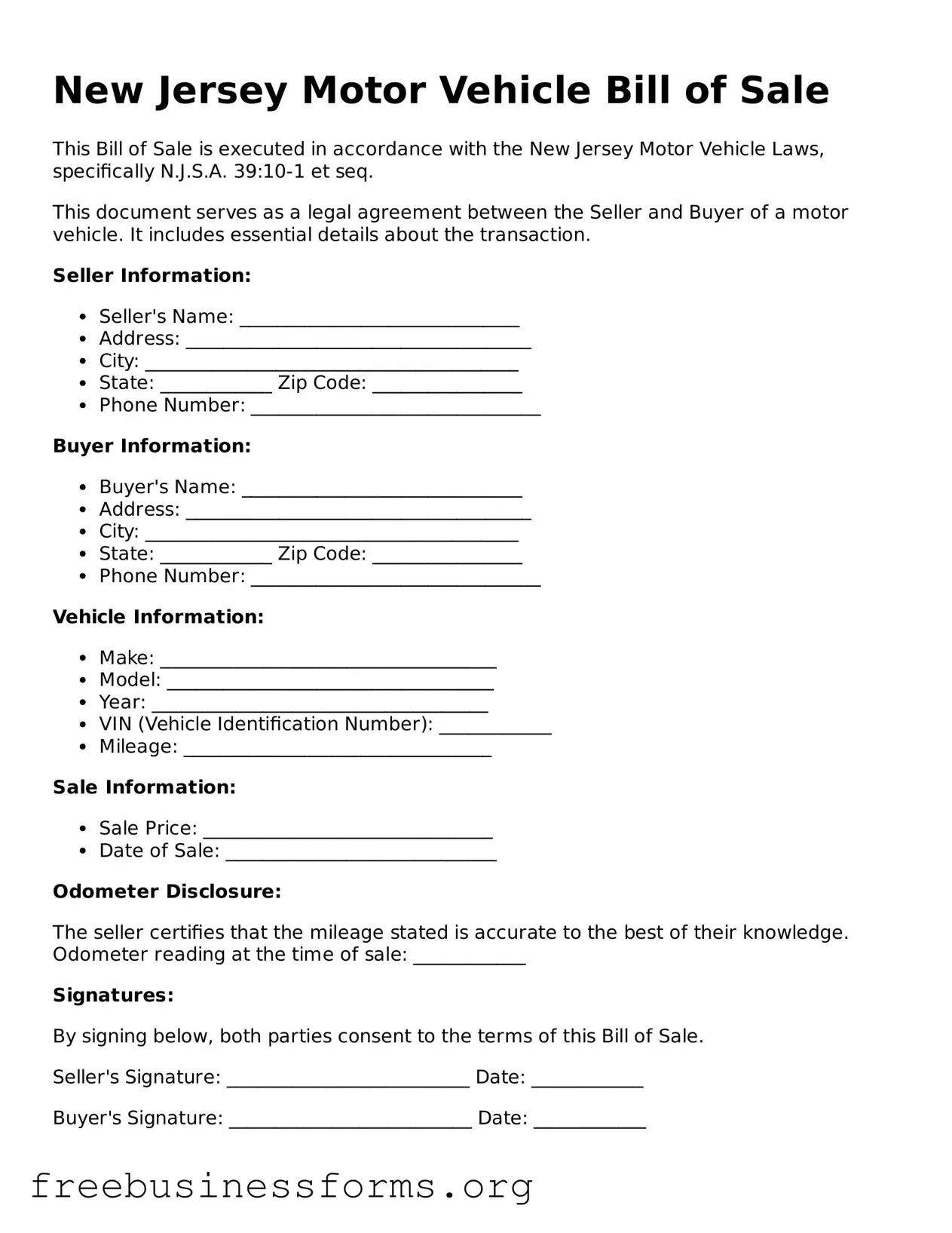Blank Motor Vehicle Bill of Sale Template for New Jersey
The New Jersey Motor Vehicle Bill of Sale form is a crucial document that records the sale of a vehicle between a buyer and a seller. This form provides essential details about the transaction, ensuring that both parties have a clear understanding of the agreement. Understanding how to properly complete this form can help facilitate a smooth transfer of ownership and protect the rights of both the buyer and seller.
Open Form Here

Blank Motor Vehicle Bill of Sale Template for New Jersey
Open Form Here

Open Form Here
or
↓ PDF File
Quickly complete this form online
Complete your Motor Vehicle Bill of Sale online quickly — edit, save, download.